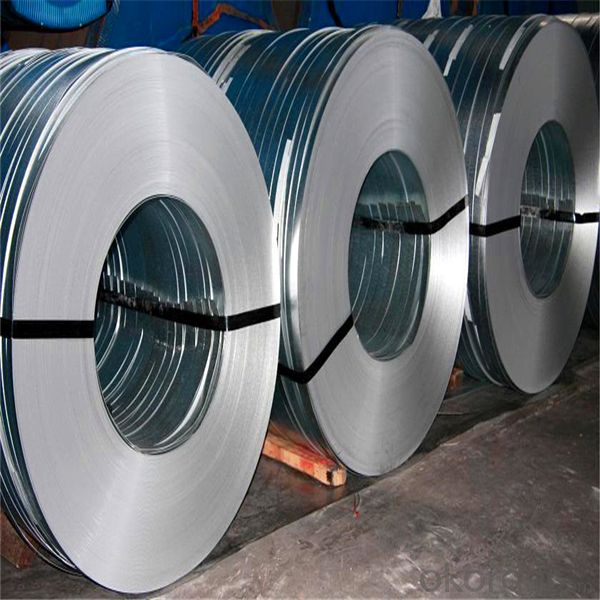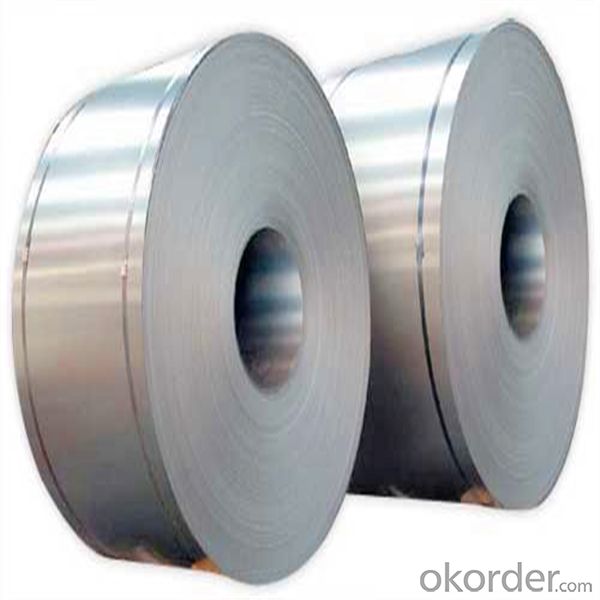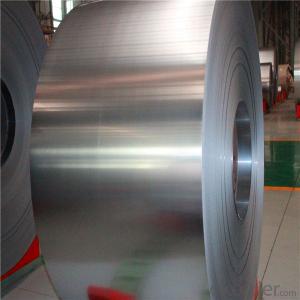SPCC Cold Rolled Coil China Supplier High Quality
- Loading Port:
- China main port
- Payment Terms:
- TT OR LC
- Min Order Qty:
- 12 m.t.
- Supply Capability:
- 10000 m.t./month
OKorder Service Pledge
OKorder Financial Service
You Might Also Like
Item specifice
Classification | Designation | Characteristics | Main applications |
Commercial quality | SPCC SPCCT | Commercial quality suitable for bending | Refrigerators, cabinets, power distribution baords and drums. |
Drawing quality | SPCD | Drawing quality second only tothat of SPCEN. Excellent uniformity. | Automobile floor and roof panels. |
Deep-drawing quality | SPCE SPCF | Deep-drawing quality.With metallurgically controlled grain size, it retains its beautiful | Automobile fenders and quarter panels |
Extra deep-drawing quality | SPCG | Extra-low-carbon steel sheets with highest workability | Automobile internal panels and deep-drawn parts |
About company
Tianjin Yichengtong Steel Trade Co., Ltd is a group company which manufactures, cooperates and trades the stainless steel material, steel pipes and plates
since 2008. It is located in Tianjin, the Steel base of China, and It is known all over the world. It is very close to Xin'gang Seaport. It is very convenient in
land carriage, carriage by sea and carriage by air.
Main products
Carbon / Alloy / Stainless / Aluminum / Copper
· Steel Sheet/Plate
· Steel Coil / Strip
· Steel Round / Square / Flat / Angle / Bar & Rod
· Steel Pipe / Seamless Tube
Advantage
· Our company is high quality supplier in China with good reputation
· High quality stainless steel products with a competitive price
· Excellent experience and import-export business skill
· Ensure you best quality and timely delivery
Main Markets:
Ireland, Singapore, Indonesia,Ukraine, Saudi Arabia, Spain, Canada, USA,
Brazil, Thailand, Iraq, Russia, Holland, Turkey, Kuwait, Korea, Iran, India,
Egypt, Oman, Malaysia, Peru, Vietnam, Mexico, etc.
Prodcut Picture:


- Q:I have heard of Cold Rolled steel, Castle Forged steel and Valerian steel and i was just wondering the difference between them.I know Valerian steel is by far the strongest and durable but what about the other two types? Do you know because i haven't read all the books yet.
- Cold rolled steel is referring to rolled steel. It is referring to weapons made from rolled steel that is unrolled and stamped out. In real-life, rolled steel isn't nearly as strong as steel that is cast and forged. Think of a cheap dinner fork that you can easily bend and a nice dinner fork you can't bend at all. The cheap fork is stamp-pressed out of rolled steel and the nice fork is cast. In Game of Thrones, cold rolled steel is crap, but it's cheep and common. Castle forged steel is the best most people have available, much higher quality than cold rolled steel. Presumably it's forged in the castles of Westeros, including King's Landing. Valerian steel is special, rare steel that was anciently forged that is stronger than any other steel. They no longer make Valerian steel since the fall of Valeria. As such, the only Valerian steel available is by getting it from things already made. In real-life, it might be comparable to the extremely high quality steels forged into ancient katanas, ninja fighting swords from Japan. The Lanisters took a sword made of Valerian steel that had been passed down to Ned Stark and had it melted down, recast, then forged into two smaller swords.
- Q:How do steel coils contribute to the agricultural industry?
- Steel coils are essential in the agricultural industry as they are used to manufacture various equipment and machinery. From tractors and harvesters to irrigation systems and storage tanks, steel coils provide the necessary strength and durability required for these agricultural applications. Additionally, steel coils are used in the construction of infrastructure like barns, silos, and fences, ensuring the safe storage and protection of crops and livestock. Overall, the use of steel coils in the agricultural industry helps enhance productivity, efficiency, and sustainability in farming operations.
- Q:I have a tiara and it oxidized and I'm not sure what material it is. I know it it isn't metal so i was wondering if is steel? Also if it's steel, can I do something to clean it?
- Yes - Steel can oxidize, its most commonly called rust Steel is a metal. Depending on the level of oxidation, you might be able to polish it with very fine steel wool. If is is really bad, then you might need a chemical cleaner such as Naval Jelly, which can be found at the hardware store. But the Naval Jelly might discolor the metal, so then you might need to polish it afterward to return its finish.
- Q:I am thinking about getting a cold steel tilite or a kershaw leek or possibly a buck sirus. If you have had any experience with these knives please give it to me. thanks
- You could argue that CS makes the tougher steel, but as was pointed out, none of their wares are made in the U.S. - if that doesn't matter, then go with the CS. I started with a CS Holdout II and ended up sending it back and going with a Kershaw (Ken Onion) Blur for EDC. My next knife will be a Benchmade- they are pricey but everyone I've ever spoken to about EDC knives tell me to go to Benchmade and no one else. Not one to just listen, I had to try out a few myself. Bought the wife a Kershaw Scallion...in purple, no less.
- Q:I have my grandpa's navy knife from ww2, a mk2 combat knife i think, and i was wondering what type of steel it is made of. I'm guessing it's a high carbon steel, i'd just like to know exactly what grade.
- I would get a 1095, serrated edge, tanto style, with either a good quality rubberized or bone handle.
- Q:Help me compare the speed of sound in air, water, and steel please?Thanks.
- Sound Speed In Water
- Q:What are the common size limitations for steel coil production?
- The size limitations for steel coil production can vary based on various factors, including the type of steel used, the manufacturing process, and the available equipment. However, there are generally accepted size limitations in the industry. One primary constraint is the width of the steel coil, which is typically determined by the size of the rolling mill or slitting equipment used in production. Standard widths for steel coil production range from approximately 600 millimeters (23.6 inches) to 2,000 millimeters (78.7 inches). Nonetheless, specialized equipment and processes can achieve widths outside of this range. Another limitation is the thickness of the steel coil, which can be influenced by the type of steel, intended application, and manufacturing capabilities. Common thicknesses for steel coils range from 0.15 millimeters (0.006 inches) to 6 millimeters (0.236 inches). However, specialized equipment and processes may be required to produce thicker or thinner coils. The weight of the steel coil is also an important consideration, typically determined by the capacity of production and handling equipment, as well as transportation limitations. Standard coil weights range from a few hundred kilograms to several tons. However, larger equipment or dividing the coil into smaller coils can enable the production of coils that exceed these limits. In addition to width, thickness, and weight, there may also be limitations on the length of the steel coil. This can be influenced by factors such as the size of the production line, handling and transportation capabilities, and customer requirements. Standard coil lengths typically range from a few meters to several tens of meters. However, specialized equipment and processes can produce longer coils. It is important to note that these size limitations are not fixed and can vary depending on project or customer requirements. Manufacturers often collaborate closely with customers to determine the optimal size limitations for their steel coil production, ensuring the final product meets desired specifications.
- Q:What are the different methods of coil recoiling for steel coils?
- Steel coils can undergo coil recoiling using various methods, each with its own advantages and applications. Some commonly used methods include: 1. Slitting and rewinding: This method entails cutting the wide steel coil into narrower strips, which are then rewound into smaller coils. Circular blade slitting machines are typically employed for steel cutting, while the rewinding process ensures tight and uniform winding of the narrower strips. Industries like automotive, construction, and packaging widely employ this method. 2. Rewinding with tension control: This method involves unwinding and rewinding the steel coil using tension control systems. These systems maintain consistent tension throughout the recoiling process, resulting in uniform winding quality. This method proves beneficial when handling delicate or sensitive materials that require gentle treatment. 3. Recoiling with edge trimming: In situations where steel coil edges are damaged, uneven, or flawed, edge trimming can be combined with the recoiling process. Edge trimming machines remove defective sections, ensuring coils with smooth and even edges. 4. Recoiling with surface treatment: Steel coils often undergo surface treatment processes like oiling, coating, or galvanizing to enhance corrosion resistance or improve surface properties. Recoiling can be performed alongside these treatments, guaranteeing proper application and uniform coverage across the entire coil surface. 5. Recoiling with tension leveling: Tension leveling is a process that eliminates coil shape defects, such as coil set or crossbow, by applying tension during recoiling. This method ensures a flat and even coil shape, which is advantageous for subsequent processing and manufacturing operations. 6. Recoiling with precision slitting: Precision slitting is a specialized method used to achieve extremely narrow strip widths or tight tolerances in the steel coil. It involves precise control of slitting knives and winding tension to ensure accurate and consistent strip dimensions. Industries requiring high precision, such as electronics or precision engineering, commonly employ this method. In summary, the choice of coil recoiling method depends on factors such as desired coil dimensions, material characteristics, surface requirements, and the specific industry or application. Manufacturers often combine multiple methods to meet the diverse needs of their customers.
- Q:What are the common methods of protecting steel coils from corrosion during storage?
- To safeguard steel coils from corrosion during storage, there are multiple commonly employed techniques. These methods aim to shield the steel coils from moisture and other environmental factors that could trigger corrosion. 1. VCI (Volatile Corrosion Inhibitor) Packaging: VCI packaging is extensively utilized for steel coil protection. It incorporates VCI materials into the packaging, such as plastic bags or films. These materials emit a vapor that forms a protective layer on the surface of the steel coils, effectively preventing the intrusion of moisture and corrosive agents. 2. Oil Coating: Another widely adopted approach involves applying a thin layer of oil onto the steel coil surface. This oil acts as a barrier, obstructing the contact between the steel and moisture or oxygen. It proves particularly effective for long-term storage or transportation situations. 3. Desiccants: Silica gel packets or similar desiccants can be placed inside the packaging to absorb any trapped moisture. By reducing humidity levels within the packaging, the risk of corrosion is minimized. This method is often combined with VCI packaging or oil coating. 4. Proper Ventilation: Adequate ventilation is crucial to prevent moisture buildup around the steel coils during storage. By facilitating the free circulation of air, humidity levels are reduced, and the formation of condensation, which can lead to corrosion, is prevented. 5. Controlled Environment: Storing steel coils in a controlled environment is an effective corrosion prevention measure. This entails maintaining constant temperature and humidity levels that are unfavorable for corrosion. Temperature and humidity control can be achieved using air conditioning or dehumidification systems. It should be noted that the choice of specific protection methods or combinations thereof depends on various factors, including storage duration, environmental conditions, and specific steel coil requirements. Regular inspections and maintenance are also vital to ensure ongoing corrosion protection.
- Q:How are steel coils coated for corrosion resistance?
- Steel coils are typically coated for corrosion resistance using various methods such as hot-dip galvanizing, electroplating, or applying a protective layer of paint or powder coating.
1. Manufacturer Overview |
|
|---|---|
| Location | |
| Year Established | |
| Annual Output Value | |
| Main Markets | |
| Company Certifications | |
2. Manufacturer Certificates |
|
|---|---|
| a) Certification Name | |
| Range | |
| Reference | |
| Validity Period | |
3. Manufacturer Capability |
|
|---|---|
| a)Trade Capacity | |
| Nearest Port | |
| Export Percentage | |
| No.of Employees in Trade Department | |
| Language Spoken: | |
| b)Factory Information | |
| Factory Size: | |
| No. of Production Lines | |
| Contract Manufacturing | |
| Product Price Range | |
Send your message to us
SPCC Cold Rolled Coil China Supplier High Quality
- Loading Port:
- China main port
- Payment Terms:
- TT OR LC
- Min Order Qty:
- 12 m.t.
- Supply Capability:
- 10000 m.t./month
OKorder Service Pledge
OKorder Financial Service
Similar products
New products
Hot products
Related keywords




























